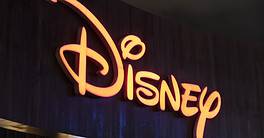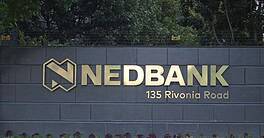Despite rising nationalism, global dealmakers increasingly look across borders for opportunity.

Politically, 2017 looks like the Year of the Wall, with governments from Washington to London to Beijing committed to hindering the free flow of people, goods or capital, while their ideological kindred bid for power across continental Europe. But protectionist barriers will strain to hold back an unprecedented globalist tide among economic actors, specifically corporations that are scouring the world for deals to juice lackluster growth.
Animal spirits returned to the global M&A market in 2015—a year that shattered transaction records—and they have not subsided yet. A survey conducted by consultants EY last October, on the eve of Donald Trump’s shock US election victory, found that 57% of top executives worldwide expected to “actively pursue” combinations over the following 12 months. That urge to merge is increasingly heedless of political boundaries. More than one in three 2016 deals were transacted across borders, according to J.P. Morgan data.
The economic triggers for M&A remain ready to fire. US corporations alone are sitting on $1.7 trillion in cash reserves. Private equity funds have another $822 billion in so-called dry powder awaiting deployment. Borrowing costs remain historically cheap, while tortoise-paced expansion in core markets has become a new normal. EY survey respondents expected fully 45% of their growth going forward from “inorganic” sources, meaning acquisitions or joint ventures.
Political pushback against this internationalist flood started before Trump took office, notably with respect to Chinese overseas acquisitions. Chinese companies launched a foreign buying rampage last year, tripling their announced deals to $219 billion and nudging US corporates off their accustomed pedestal as top global buyers. But the spree provoked reaction both inside China, where policymakers began to rumble darkly about restricting capital exports, and abroad. Liberal bastions Germany, the Netherlands and Australia all nixed Chinese acquisitions in late 2016 on national security grounds.
Washington regulators scuppered a few blockbuster transactions last year involving US companies, notably Pfizer’s proposed $152 billion purchase of Allergan, which would have allowed the pharma giant to “invert” itself out of America for tax purposes. Antitrust officials also barred a $35 billion tie-up between two major oil service providers, Halliburton and Baker Hughes, and flashed a yellow light at telecom AT&T’s planned $85 billion takeover of content empire Time Warner.
Trump’s accession and the UK’s “Brexit” vote to leave the European Union have not made the macro atmosphere more congenial. Yet dealmakers around the world appear to be keeping calm and carrying on. “It’s been surprising that globally we’ve been able to maintain this momentum and not have the anxieties you could reasonably expect,” says Brian Hwang, director of M&A strategy at Intralinks, a New York-based provider of Cloud-based business services that forecasts deal activity.
One driver of bullish sentiment is an expected surge in dealmaking elsewhere in Asia to balance the cool-off in China. The latest Intralinks survey shows M&A volume in India doubling from a year earlier, as both domestic and international acquirers look to bulk up in the fastest-growing major economy. Buyer interest in Indonesia, Malaysia and other smaller markets drives a 44% growth for the Asia-Pacific region as a whole.
Japanese corporates should increase their role as international acquirers to take up some of the Chinese slack, J.P. Morgan predicts. Japan Inc. is growing steadily more cosmopolitan: It looked abroad for 58% of its acquisitions in 2016, up from 44% five years earlier, J.P. Morgan finds. A strengthening yen this year could propel that figure higher still. Nor have Chinese companies entirely shelved ambitions beyond their borders. Ant Financial, the payments arm of Internet giant Alibaba, announced in February it would borrow up to $3 billion to fund expansion and acquisitions outside of China.
Ant’s initiative underlines an expansionist mood sweeping financial companies worldwide, the M&A gurus say. American banks seem to have found firm footing eight years after the 2008 crisis, and are enthusiastic about the prospect of Trump-driven deregulation. Their tattered European counterparts are getting at least temporary reprieve, with share prices soaring since last summer. The revived institutions are set on buying up each other, and dynamic financial technology start-ups, in increasing numbers. Intralinks flags financials as a key growth sector for 2017 M&A, along with healthcare and materials. Respondents to a recent KPMG survey tagged fintech as the most attractive “emerging sector,” with digital health a somewhat distant second.
Corporate chieftains also seem to be taking a benign view of Trump so far—hoping he will boost the bottom line by cutting taxes and red tape, while assuming his protectionist rhetoric will prove more bark than bite. “The fact that practically the entire cabinet is Wall Street dealmakers gives a certain amount of comfort,” says Hwang, referring to Treasury secretary Steven Mnuchin (former Goldman Sachs chief information officer), Commerce secretary Wilbur Ross (private equity billionaire), and economic council chief Gary Cohn (ex-Goldman president), among others.
The Trump administration could boost intra-US M&A with a lighter touch on antitrust, starting with the signature AT&T—Time Warner transaction, says Jeffrey Haidet, US chairman of multinational law firm Dentons and a frequent deal adviser. But as on other issues, the president has not made his position entirely clear. Trump excoriated the tie-up as a candidate, but in January said “I haven’t seen any of the facts yet.”

Whatever the outcome of AT&T—Time Warner, Haidet and others expect executives’ focus to shift away from megamergers, which fell apart in record numbers last year for a variety of reasons, to more manageable transactions that fly below the radar of politicians and activist shareholders. The strong dollar could give a tailwind to a new, smaller class of US corporate shoppers. “Typical middle-market US companies may not have thought much about outbound M&A before, but now they are,” Haidet says. EY research backs up this anecdotal impression. “A drop-off in megadeals appears likely to continue,” the consultant concludes. It expects instead “an increase in planned deals in the $250 million—$1 billion range.”
The heady M&A mood is not immune to politics. Exhibit A for that premise is the UK, where the uncertainties of Brexit seem to be scaring off buyers despite the bargains promised by a depreciated pound. The various surveys rank much-derided continental economies like France and Italy above Britain as target-rich corporate environments.
Yet the political spotlight shifts to mainland Europe over the coming months. France votes for a new president in Aptil, with a run-off in May, and Germany for a new parliament in September, with Italy possibly in between. Nationalist-protectionist parties loom large in all three, with the possibility of France-firster Marine le Pen taking power seeming more realistic by the day.
If you’re thinking you might want to sell your fintech or health care data firm, 2017 may be your best year for drawing suitors from around the world, and possibly sparking a bidding war.



